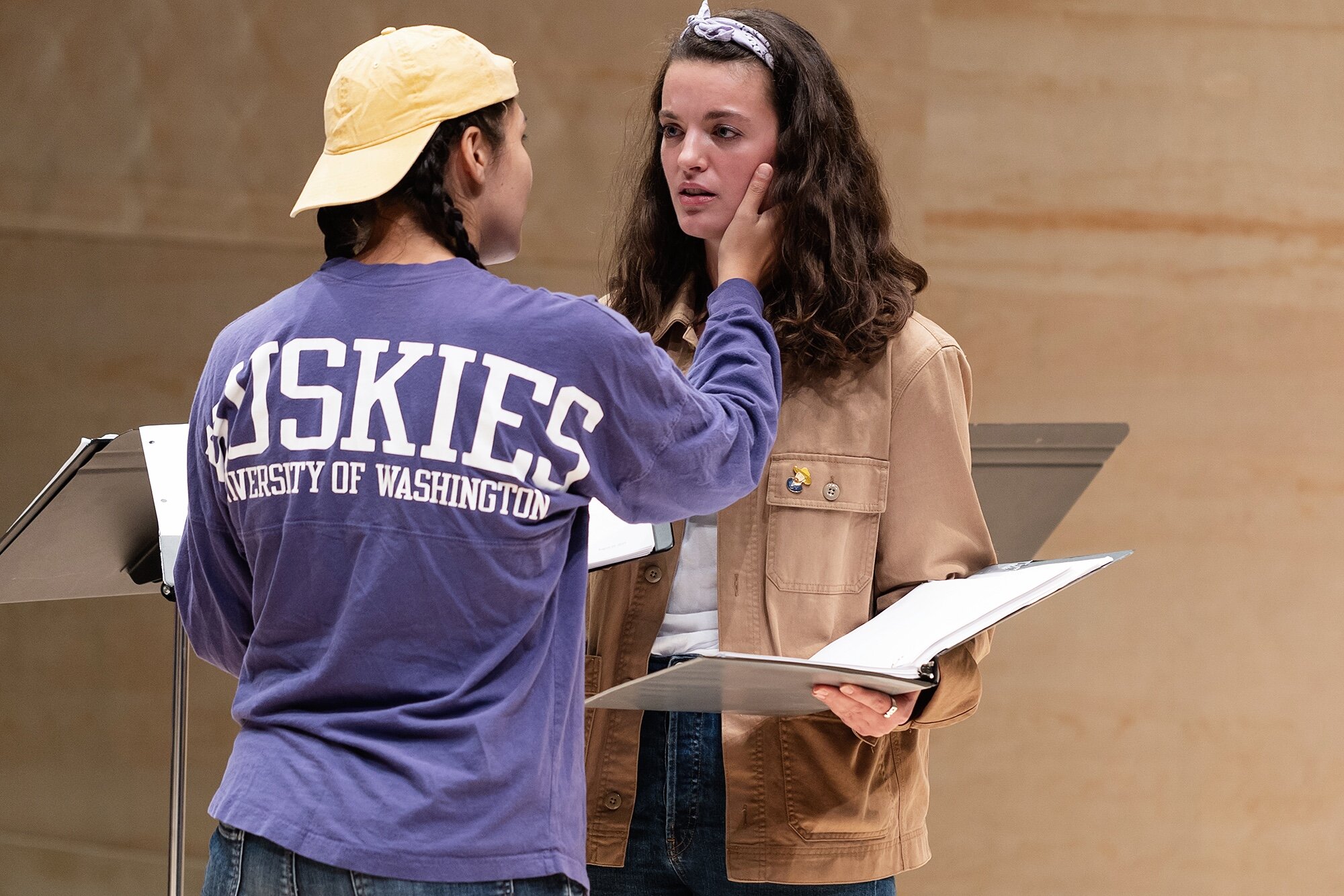Resolving the Distance
Annie J. Willis and the cast of Rushing.
When people ask me what I’m working on, 90% of the time I lead with Rushing.
I’m proud of it, for one. I’m proud of how much work and research I put into this play — and how beautiful the whole thing functioned in my mind for basically the entire writing process. And I’m an insecure writer. I need a lot of outside validation that the thing I’m working on is worth the mental gymnastics that almost always go dark. But it’s also worth saying that this beautiful play in my head just wasn’t making its way onto the actual page. Until literally last month.
I guess what I’m trying to say is that I believed in this play for far longer than I had the right to.
Not that I don’t have the right to believe in myself, but I put a half baked play in front of a small audience back in December and let myself believe I was god. And then I saw the reading. And oh boy did I have some work to do. But this play was violent. And there were seventeen damn characters to keep straight. And, to be frank, no one was waiting for this play.
So I started selectively applying to local development programs — workshops and residencies that would allow me to keep working with my director and my dramaturg because they believed in this play right alongside me. So when one of them said yes — to the cast size, to the creative team needs, to all of it — I picked that half-done play back up again and did the difficult work of putting less and less distance between the play that was in my brain and the play that was on the page.
I’m embarrassed, but not that embarrassed, to admit that in December I got very drunk and told Sara that this was my best play.
At the time, that was a total lie.
But it was a lie that I didn’t even know I was telling. It was the delusion of someone unable to put in the real work. It was a lie rooted in the (almost exclusively male) validation of my cast. It was a lie rooted in the fear of pushing myself further.
Only a few actors carried over from the December 2018 workshop to the August 2019 one. It wasn’t an intentional choice; so many of our original actors had moved or were unavailable or were too old for the play or were (strangely) too young. And that ended up being really great for the play. Because we had no desire to hold onto the history of that old draft.
One day outside rehearsal, Dylan (who played Tag) started talking to me about the version of the play we were working on in that moment. He’d been with me since the beginning, in a role that became more and more villainous as time went on. Off stage, Dylan oscillates between being soft spoken and boisterous, a yo-yo of energy. I run into him very rarely, mainly because we live in separate neighborhoods and have very different jobs when we’re not in rehearsal together. So it was surprising to see him at a show, also alone. And because we don’t know each other that well, we talked about work.
The play got much queerer, that’s for sure.
“You really went for it this time.”
He meant it as a compliment and I’m really trying to get better at taking compliments. But instead I made a joke about being young and wearing lots of dresses and surprising people when I go dark. What I really wanted to say was that I was proud of myself for the way things were going. I was excited by the way this play moves — both literally on stage and figuratively/metaphorically/whatever-ly in terms of pacing. I wanted to say that I’m terrified of finding a home for this play because so many orgs are excited by the concept but can’t handle the personnel required. I wanted to say thank you thank you thank you.
I was accepted into this workshop with a half-baked draft. I left with a production-ready script.
So I’ll say thank you. I’ll keep setting up meetings. I’ll brainstorm possible homes with my director and then email, email, email. Meet, meet, meet. This play deserves a great home. I know that now. But it’s up to me to find that.

